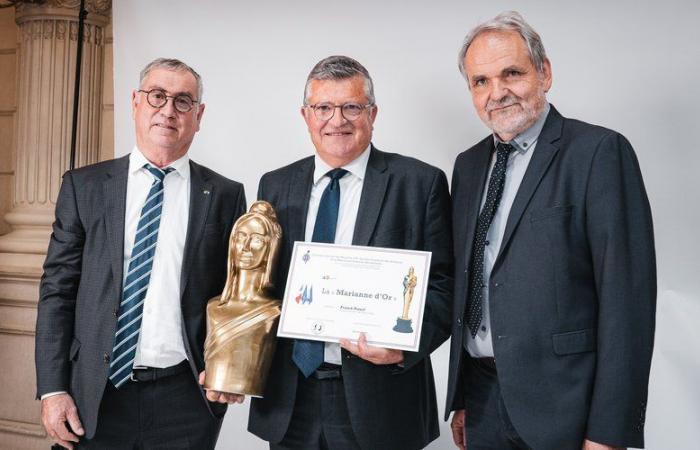
During an official ceremony held this Tuesday, October 8 in Paris, the president of Nîmes Métropole, Franck Proust, was rewarded with a Marianne d’Or for his ecological initiatives. A prize which crowns an ambitious strategy geared towards the eco-metropolis of tomorrow.
“It’s a great reward.” The majestic reception room of the Intercontinental Paris Le Grand Hotel saw personalities committed to the environment parade this Tuesday, October 8, during the presentation of the Marianne d’Or 2024. Among the lucky winners, Franck Proust, president of Nîmes Métropole, proudly received this trophy, saluting the community’s efforts in sustainable development.
This is not a first for the Gard metropolis, already crowned in 2016 for the organization of a congress on environmental crime. This new distinction confirms that Nîmes Métropole persists and demonstrates its ecological ambition.
The eco-metropolis in action
For several years, the Agglo has established itself as a model of sustainable management. The eco-metropolis strategy put in place is bearing fruit with concrete actions. We note in particular the replacement of thermal buses with electric vehicles or vehicles running on biogas, the planting of microforests on six new sites in 2023, as well as the development of an ambitious territorial food project. The objective is clear: combine economic development and respect for the environment.
Midi Libre – Pierre Meuriot
This Tuesday morning, Bernard Angelras, vice-president of Nîmes Métropole, in charge of the environment and waste, did not hide his pride: “It’s good to announce a program, initiatives, it’s even better to carry them out and follow through. Today, the Metropolis is rewarded for its efforts. It’s a great reward. “
A reward beyond the symbol
The ceremony, chaired by Alain Trampoglieri, general secretary of the Marianne d’Or competition, saw fifteen mayors and community presidents from across France being honored for their ecological initiatives. Among them, Yann Galut, mayor of Bourges, future European capital of culture in 2028, or Jacques Kossowski, mayor of Courbevoie, praised for his efforts in terms of security. But on this Tuesday morning, it was also (and above all) Nîmes Métropole which shone, particularly for its innovative actions in terms of urban greening.
In his speech, Franck Proust wanted to thank the jury for this recognition: “This award recognizes the place of plants in our urban and peripheral spaces. With the creation of 18 microforests planted at the heart of the activity, 800 employees carried out the planting themselves.” A way for the metropolis to bring together areas of economic activity and biodiversity. The president of Nîmes Métropole also underlined the transversality of the projects: “Our ambition of an eco-metropolis by 2032 involves many means, whether it is water management, energy transition or even firefighting.”
Towards an even greener future
This Golden Marianne, sculpted especially to celebrate the 40th anniversary of the competition, symbolizes a true collective success. “The strength of Nîmes Métropole lies in the fact that it is not just a word, it is a reality that we live in the territory, and this is what will allow us to continue to move forward on this path for the years to come”recalled Bernard Angelras.
With concrete actions, Nîmes Métropole wishes to assert itself as a pilot community, ready to meet the ecological challenges of tomorrow. This award is not an end in itself, but an additional step towards an ever greener and more sustainable metropolis.
Franck Proust: “We must rethink the entire territory within a sustainable logic”
What place do you give to urban and peri-urban plants in your policy?
The place of plants crosses all the skills of Nîmes Métropole, whether it concerns land planning, economic development, or even waste collection and management. This means that it is not simply a question of greening the city, but of rethinking the entire territory in a sustainable manner.
Nîmes Métropole is located in one of the hottest regions of France. How do you anticipate the challenges linked to global warming?
This requires rethinking the future strategically. We must integrate the notion of global warming into all our decisions, whether for the management of natural spaces, the energy transition or the fight against fires. We have implemented several actions, notably as part of our Territorial Climate Air Energy Plan (PCAET). We must necessarily reflect and think about tomorrow’s future based on climatic hazards.





